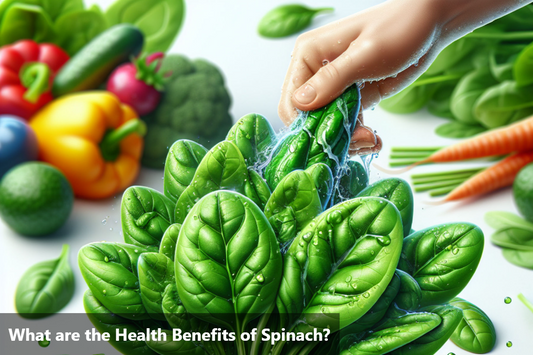Lycopene is a naturally occurring compound that belongs to the carotenoid family, known for its vibrant red color and powerful antioxidant properties. Found abundantly in fruits and vegetables, lycopene plays a crucial role in promoting overall health and well-being.
This bioactive compound is particularly prevalent in tomatoes, giving them their characteristic red hue. Watermelon, pink grapefruit, and guava are also excellent sources of lycopene.
As for its benefits, lycopene is renowned for its antioxidant abilities, which help combat harmful free radicals in the body and reduce oxidative stress. Studies suggest that regular consumption of lycopene-rich foods may contribute to a lower risk of certain chronic conditions, making it a valuable addition to a balanced diet.
Incorporating lycopene into your daily routine can be as simple as enjoying a fresh tomato salad, a refreshing watermelon snack, or a glass of pink grapefruit juice. By understanding what lycopene is and where it can be found, you can make informed choices to support your health and well-being.
Health benefits of lycopene
-
Antioxidant Protection: Consuming lycopene can boost your body's defense against harmful free radicals, reducing oxidative stress and supporting overall health.
-
Disease Prevention: Studies suggest that lycopene plays a significant role in lowering the risk of certain diseases, including heart disease and certain types of cancer.
-
Anti-Inflammatory Properties: Lycopene's anti-inflammatory properties contribute to reducing inflammation in the body, promoting better health.
-
Skin Health Improvement: Incorporating lycopene-rich foods into your diet can lead to improved skin health and protection from sun damage.
-
Delicious and Nutritious: In addition to its health benefits, incorporating lycopene into your diet offers a delicious and nutritious approach to supporting your body's well-being.
Sources of lycopene
-
Lycopene is a naturally occurring compound that gives certain fruits and vegetables their red color. It is a powerful antioxidant that can help protect cells from damage.
-
Tomatoes are one of the most well-known sources of lycopene. Whether eaten raw or cooked, tomatoes contain high levels of this beneficial compound.
-
Another excellent source of lycopene is watermelon. This delicious summer fruit not only hydrates but also provides a good dose of lycopene.
-
Pink grapefruit is also rich in lycopene, making it a refreshing option to incorporate into your diet.
-
Including lycopene-rich foods in your daily meals can have numerous health benefits. These foods can help reduce the risk of certain chronic diseases and support overall well-being.
-
When choosing lycopene sources, opt for fresh, whole foods over processed products to maximize the nutrient content.
-
To ensure you are getting enough lycopene, consider adding a variety of lycopene-rich foods to your diet, such as tomato-based sauces, watermelon salads, and grapefruit snacks.
-
By making these simple yet nutritious choices, you can boost your lycopene intake and contribute to a healthier lifestyle.
Lycopene supplements
Lycopene supplements are a popular alternative to obtaining lycopene from food sources. Lycopene, a natural pigment responsible for the red color in fruits and vegetables, is known for its antioxidant properties. These supplements offer a concentrated form of lycopene, making it easier to ensure an adequate intake. They are convenient for individuals with dietary restrictions or difficulty consuming lycopene-rich foods regularly. Benefits may include enhanced protection against oxidative stress. However, there are risks; it's important to follow recommended dosages and consult with a healthcare professional. Lycopene supplements can be a valuable addition to your wellness regimen, providing a convenient way to benefit from lycopene's antioxidant properties.
Unraveling Lycopene: Exploring the Powerful Antioxidant in Your Diet
-
Lycopene is a powerful antioxidant found in various fruits and vegetables like tomatoes, watermelon, and pink grapefruit, known for its health benefits.
-
Incorporating lycopene-rich foods or supplements into your daily routine can have a positive impact on your overall health.
-
By consuming lycopene, you can potentially reduce the risk of certain diseases and improve your well-being.
-
Lycopene is crucial for protecting cells from damage caused by free radicals, which are harmful molecules in the body.
-
Including lycopene sources in your diet can contribute to promoting heart health and supporting a strong immune system.
-
Supplements can be a convenient way to ensure an adequate intake of lycopene, especially when fresh produce is not readily available.
-
Remember to consult with a healthcare professional before starting any new supplement regimen, to ensure it aligns with your individual health needs.
-
Prioritize adding lycopene-rich foods or supplements to your diet to harness their potential health benefits and support your well-being.
FAQs:
-
What is lycopene?
Lycopene is a natural pigment and antioxidant compound that belongs to the carotenoid family, responsible for giving fruits and vegetables their red color.
-
Why is lycopene beneficial for health?
Lycopene has shown to have several health benefits, including its potential role in reducing the risk of certain chronic diseases, supporting heart health, and providing protection against some types of cancer.
-
Which foods are good sources of lycopene?
Foods rich in lycopene include tomatoes, watermelon, pink grapefruit, guava, and red bell peppers. Cooking helps to release more lycopene from these foods.
-
Is lycopene only found in fruits and vegetables?
While fruits and vegetables are primary sources of lycopene, small amounts of lycopene can also be found in products like ketchup, tomato sauces, and supplements.
-
Are there any side effects associated with lycopene consumption?
Lycopene is generally considered safe when consumed in moderate amounts through food sources. However, excessive intake of lycopene supplements may lead to certain side effects like digestive issues or skin discoloration.
This Blog post is an initiative by DiabeSmart, to provide accurate and Nutritionist / Doctor approved information related to Diabetes. DiabeSmart is India's first Food brand designed specifically for Diabetics, that has been clinically tested on Diabetics and Pre-Diabetics to deliver 55% - 70% lower Sugar spikes. DiabeSmart is part of Lo! Foods - India's leading brand for Everyday Functional Health foods.















